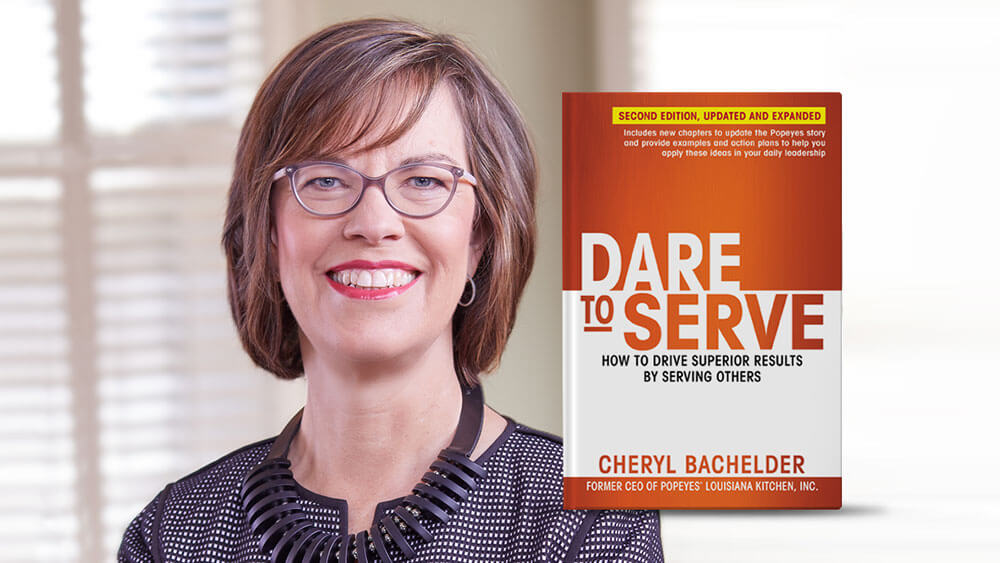
Cheryl Bachelder, former CEO of Popeyes Louisiana Kitchen and author of “Dare to Serve: How to Drive Superior Results by Serving Others,” credits her success to servant leadership. (CourtesyCheryl Bachelder)
“Servant leadership” so often has landed on recent business trends lists that many people think the philosophy — in which leaders share power, put the needs of others first, and help people develop and perform in the workplace — is new. But it isn’t.
The term was coined in a 1970 essay titled “The Servant as Leader” written by Robert Greenleaf, founder of the Greenleaf Center for Servant Leadership. Still, many are unsure what servant leadership looks like and what they can do to become such a leader. Real-life examples of and from servant leaders offer a place to start.
One leader who credits servant leadership for her success is Cheryl Bachelder, former CEO of Popeyes Louisiana Kitchen and author of Dare to Serve: How to Drive Superior Results by Serving Others. She led a 2017 “Top 10 servant leadership list” in Inc.
Bachelder earlier told Business Insider: “The biggest distinction of a leader who serves others versus themselves is the ability to listen. When you listen, you hear people’s objections, anxieties, and fears — and you also hear the solutions.
“Most people discount this as nice-guy leadership that’s about hugs and campfires,” she added. “Very few people have considered it might be the most effective. The greatest benefit is superior performance.” Bachelder says servant leadership is what helped her achieve a turnaround at Popeyes, where the stock quadrupled while she was CEO. It was sold in 2017 to Burger King owner Restaurant Brands International Inc. for $1.8 billion, prompting Bachelder’s departure.
Such performance benefits are backed up in research by the University of Illinois at Chicago, which found that when managers create a culture where workers know the boss puts employees’ needs over his or her own, there are measurable improvements in multiple facets of a business.
Herb Kelleher, the late co-founder and CEO of Southwest Airlines, was an ardent supporter of service leadership and believed that “the business of business is people.” During his tenure at Southwest, Kelleher implemented 10 Customer First Principles that guided the airline’s famous customer-first mentality. He also started a set of Employee First Principles, which are the Customer First Principles with “employee” subbed in for “customer.” The result? A workplace that aims to respect all individuals.
One example of Kelleher’s servant leadership style occurred nearly 20 years ago when he boarded a Southwest plane and assisted the flight attendants with their snack and beverage service. As he approached each passenger he said: “Hi. My name is Herb Kelleher. Thank you for flying my airline. Can I get you something to drink?”
Southwest Airlines hosted a barbeque in honor of Kelleher that took place during the recent partial government shutdown. Southwest employees in Oakland, California, put Kelleher’s values into action by including TSA workers affected by the shutdown in the festivities.
“Herb always believed in servant leadership,” Southwest’s Oakland Station Leader Steve Bernhardt told the Bay Area’s KRON. “What better way to celebrate [him] than to show our appreciation not only to our employees, but to the TSA agents who work very hard for us on a daily basis.”
For more on servant leadership, read Convene’s recent coverage of how serving is the new way of leading and how that is resonating in the business events industry.
